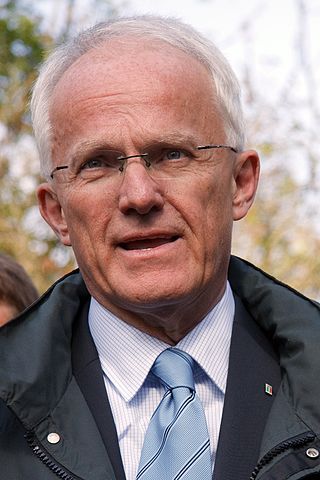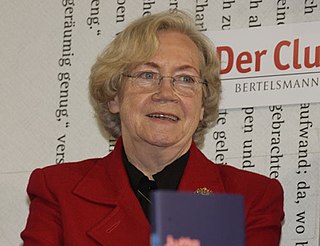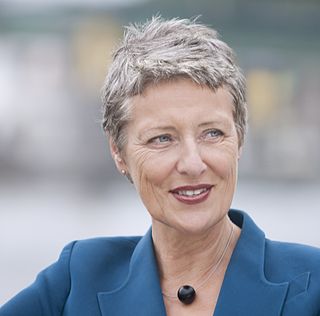
Gary Smith (born July 26, 1954 in New Orleans) is an American philosopher and culture manager.

Gary Smith (born July 26, 1954 in New Orleans) is an American philosopher and culture manager.
Smith grew up in Austin, Texas. After graduating from high school in 1972, he went on to study philosophy and German in Houston and Boston as well as in Frankfurt as a DAAD scholarship recipient. After completing a dissertation on Walter Benjamin, Smith earned his doctorate in 1989 from Boston University.
Between 1986 and 1992, Smith had teaching positions in Boston, Chicago, and Potsdam, Germany, as well as at the Berlin University, where he lectured on Jewish studies and philosophy. From 1992 to 1998, he led the Einstein Forum in Potsdam.
From 1997 until 2014, Smith was the Executive Director of the American Academy in Berlin. [1] His academic publications include: Benjaminiana. Eine biographische Recherche, with Hans-Georg Puttnies; Gershom Scholem. Zwischen den Disziplinen; Amnestie, oder die Politik der Erinnerung in der Demokratie, with Avishai Margalit; Wissenbilder. Strategien der Überlieferung, with Ulrich Raullf; Hannah Arendt Revisited: Eichmann in Jerusalem.
Since 2016, Smith has been a member of the so-called Limbach Commission (Advisory Commission on the return of cultural property seized as a result of Nazi persecution, especially Jewish property), a panel convened by the German government to give recommendations on restitution claims regarding art works stolen or purchased under duress by the Nazis. [2]
For his dedication to the building of networks in knowledge and cultural exchange on the national and international levels, he earned the Cross of the Order of Merit of the Federal Republic of Germany in 2002. In 2011, the city of Berlin thanked Smith for his cultural and scholarly development of the German-American friendship and the contributions to the city with intellectual, challenging, and outstanding events with the Order of Merit of Berlin.
Smith is in his second marriage to the daughter of the former Berlin Mayor, Klaus Schütz. He has a son from his first marriage and a son as well as twin daughters from his second marriage.

Kristallnacht (German pronunciation: [kʁɪsˈtalnaχt](listen)) or the Night of Broken Glass, also called the November pogrom(s) (German: Novemberpogrome, pronounced [noˈvɛm.bɐ.poˌɡʁoːmə](listen)), was a pogrom against Jews carried out by the Nazi Party's Sturmabteilung (SA) paramilitary and Schutzstaffel (SS) paramilitary forces along with some participation from the Hitler Youth and German civilians throughout Nazi Germany on 9–10 November 1938. The German authorities looked on without intervening. The name Kristallnacht (literally 'Crystal Night') comes from the shards of broken glass that littered the streets after the windows of Jewish-owned stores, buildings and synagogues were smashed. The pretext for the attacks was the assassination of the German diplomat Ernst vom Rath by Herschel Grynszpan, a 17-year-old German-born Polish Jew living in Paris.
Mischling was a pejorative legal term which was used in Nazi Germany to denote persons of mixed "Aryan" and non-Aryan, such as Jewish, ancestry as they were classified by the Nuremberg racial laws of 1935. In German, the word has the general denotation of hybrid, mongrel, or half-breed. Outside its use in official Nazi terminology, the term Mischlingskinder was later used to refer to war babies born to non-white soldiers and German mothers in the aftermath of World War II.

Wilhelm Maria Hubertus Leibl was a German realist painter of portraits and scenes of peasant life.
Eugen Karl Dühring was a German philosopher, positivist, economist, and socialist who was a strong critic of Marxism.

The history of the Jews in Germany goes back at least to the year 321, and continued through the Early Middle Ages and High Middle Ages when Jewish immigrants founded the Ashkenazi Jewish community. The community survived under Charlemagne, but suffered during the Crusades. Accusations of well poisoning during the Black Death (1346–53) led to mass slaughter of German Jews and they fled in large numbers to Poland. The Jewish communities of the cities of Mainz, Speyer and Worms became the center of Jewish life during medieval times. "This was a golden age as area bishops protected the Jews resulting in increased trade and prosperity."

Jürgen Rüttgers is a German politician of the Christian Democratic Union (CDU) who served as the 9th Minister President of North Rhine-Westphalia from 2005 to 2010.

Nazi plunder was the stealing of art and other items which occurred as a result of the organized looting of European countries during the time of the Nazi Party in Germany.

Hans-Jürgen Papier is a German scholar of constitutional law who served as president of the Federal Constitutional Court of Germany from 2002 to 2010.

Jutta Limbach was a German jurist and politician. She was a member of the Social Democratic Party of Germany (SPD) and served as President of the Federal Constitutional Court of Germany from 1994 to 2002, the first woman in this office.

Marieluise Beck is a German politician who served as member of the Alliance '90/The Greens group in the Bundestag until 2017. She was also a member of the Parliamentary Assembly of the Council of Europe.

Friedrich Karl Otto Dibelius was a German bishop of the Evangelical Church in Berlin-Brandenburg, a self-described anti-Semite who up to 1934 a conservative who became a staunch opponent of Nazism and communism.

Carl Eduard Ferdinand Blechen was a German landscape painter and a professor at the Academy of Arts, Berlin. His distinctive style was characteristic of the Romantic ideals of natural beauty.
Hermann Schreiber was a German doctor of philosophy, rabbi and journalist.

Eva Lohse is a German politician of the Christian Democratic Union (CDU). She was the mayor (Oberbürgermeisterin) of Ludwigshafen from 2002 to 2017.
Anna Caspari was a German Jewish art dealer who was deported from Germany and murdered by the Nazis in Kaunas in 1941.

Max James Emden was a German chemist, wholesale merchant, art collector and from 1926 owner of the Brissago Islands on Lake Maggiore. Some of Emden's properties, including valuable paintings, have been the object of Nazi-era restitution claims. How his legacy has been handled has sparked a debate in Germany about the erasure of information concerning the Nazi era and inspired films about his life.

Julius Freund was a German entrepreneur and art collector persecuted by the Nazis because he was Jewish.
Alexander Lewin was a German Jewish entrepreneur and art collector who was persecuted and plundered by the Nazis.
Heinrich Rieger was an Austrian dentist whose art collection was one of the most important in Austrian modern art. Rieger and his wife were murdered in the Holocaust.